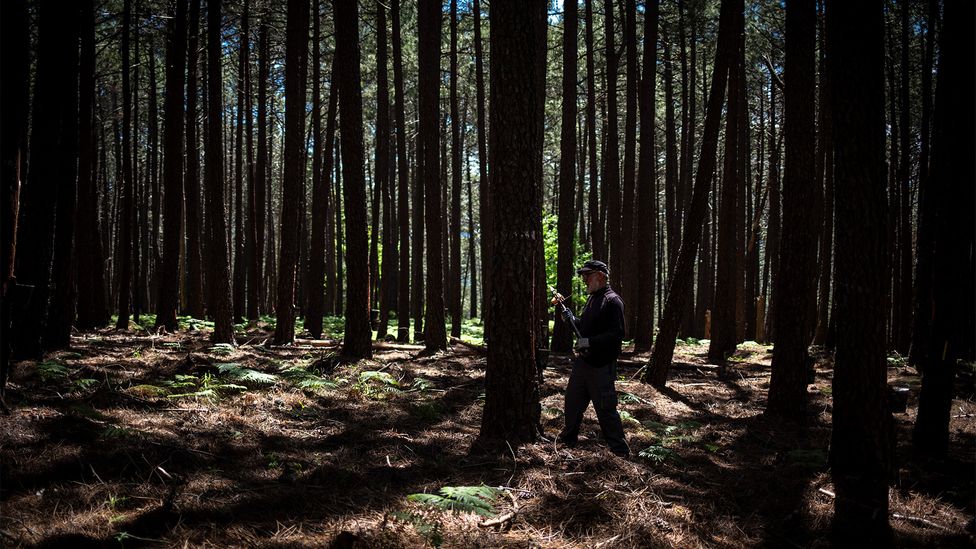Stretching north from Madrid, north-west Spain's autonomous Castilla y León region is a patchwork of vast mountain ranges, high plateaus and medieval towns. While most visitors come to marvel at the castillo castles that lend the region its name or admire the enchanting cathedrals in León and Burgos, much of the area is blanketed in scrubby sierra and high-altitude meseta plains that extend as far as the eye can see.
But in the provinces of Segovia, Ávila and Valladolid, a drastically different landscape emerges. Here, amid the Tierra de Pinares and Sierra de Gredos mountain ranges, a thick, 400,000-hectare protected forest of fragrant resin pines stretches up into the mountainous folds. Shielded from the hot Spanish sun and lined with trails and, this forested frontier is a popular hiking destination for locals and tourists. And, if you visit at the right time of year and look closely, you may see workers crouched next to the tree trunks, continuing a centuries-old tradition of collecting the pine's "liquid gold".

Deep in the forests of Spain's autonomous Castilla y León province, workers carry out the age-old practice of resin tapping (Credit: Susan GiróA booming market
Pine resin has been used by different civilisations for thousands of years. In Spain and across much of the Mediterranean, it was used to waterproof ships, treat burns and light torches, among other things. But according to Alejandro Chozas, a professor in the forestry engineering department at Madrid Polytechnic University, it wasn't until the 19th and 20th Centuries that the extraction of pine resin became truly profitable in the Castilla y León region.
As technology and industrialisation helped turn the thick, milky sap into things like plastics, varnishes, glues, tyres, rubber, turpentine and even food additives in the mid-19th Century, the owners of Castilla y León's dense Pinus pinaster forests saw an opportunity. Soon, workers were hacking into the bark of resin pines across the region in order to collect the valuable sap. And while this time-consuming process has now ceased across much of the world, in the past decade it has experienced something of a rebirth in Castilla y León, which is home to more resin manufacturers than anywhere else in Europe and one of the last places on the continent where the practice persists. TO READ MORE ABOUT SPAIN'S LIQUID GOLD, CLICK HERE...
No comments:
Post a Comment